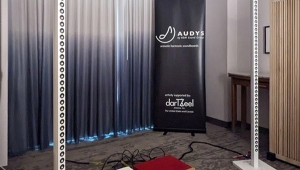| Columns Retired Columns & Blogs |
The Supremes Okay Vendor-Imposed Resale Prices
On Thursday, June 28, the US Supreme Court voted 5-4 that manufacturers could impose minimum prices if "they promote competition." The case—Leegin v. PSKS—involved Leegin Creative Leather Products, Inc., a California-based manufacturer of women's fashion accessories, which argued that it had the right to set minimum consumer prices on its products to maintain price consistency among the niche retailers it sold to. Those stores, Leegin argued, emphasized customer service, which allowed them to compete with discount retailers that are selling more widely distributed, inexpensive products.
Family-owned Kay's Kloset sold Leegin products for less than the minimum suggested price and had its supply cut off. Owners Phil and Kay Smith refused to raise prices—instead, they sued and won a $3.6 million judgment, based on the revelations of the price floor arrangement between Leegin and its retailers. The 5th Circuit Court upheld that decision.
Writing for the majority, Justice Anthony Kennedy said that the 1911 Dr. Miles rule, which held that establishing minimum retail prices was an automatic (per se) violation of the Sherman Antitrust Act, was of "slight relevance" and no longer valid. In fact, he said, "Vertical price restraints are to be judged according to a rule of reason."
Minimum price agreements can benefit consumers, Justice Kennedy wrote, by allowing retailers to invest in customer service or provide greater retail floor space to specific lines without fearing their investment will be undercut by discounting competitors.
The ruling means that accusations of minimum pricing will now be evaluated on a case by case basis.
Joining Kennedy in the majority were Chief Justice John Roberts and Justices Antonin Scalia, Clarence Thomas, and Samuel Alito. Dissenting were Justices Stephen Breyer, John Paul Stevens, David Souter, and Ruth Bader Ginsberg.
Justice Breyer wrote in the dissent, "The only safe predictions to make about today's decision are that it will likely raise the price of goods at retail and that it will create considerable legal turbulence." He speculated that the decision could cost an American family of four up to $1000 per year.
Some economic analysts speculated that the decision might shut down discounters nationwide, while others pooh-poohed that certitude. William & Mary law professor Alan Meese told Law.com, "Harmful agreements can still be policed." Meese called the ruling "a victory for sound economic analysis."
Quentin Riegel, vice president for litigation and deputy legal counsel for the National Association of Manufacturers, concurred, calling the decision "a narrow ruling that recognizes the complexity of competition and the need for courts to let it work....Despite what others may report, this ruling does not legalize resale price maintenance. It merely puts the practice on a par with other acceptable restraints that some manufacturers may impose on dealers. Resale price maintenance will be illegal, and subject to triple damages and attorneys' fees, if the manufacturer can provide no reasonable, pro-competitive justification for it. The ruling means that manufacturers will at least have a chance to say in court why their pricing policy is good for competition."
"The Consumer Electronics Association (CEA) applauds the Supreme Court decision today reversing the per se rule against resale price maintenance," CEA president and CEO Gary Shapiro said. "The Supreme Court holding that the 'rule of reason' should apply to the legality of manufacturer pricing decisions means simply that all the facts will be examined before a finding of illegality—replacing a black and white rule of illegality in every case."
"In the consumer electronics industry," Shapiro said, "where sales training, industry marketing, and after-sales service are highly valued by manufacturers and reputable retailers, it makes perfect sense to consider these factors when evaluating a manufacturer’s requirement that threshold prices be maintained."
John Marks, Stereophile's resident lawyer and willing explainer, kindly offered his take on the decision to the rest of us boneheads: "Leegin means that a plaintiff can still win, but to do so must go beyond proof of resale price maintenance and prove that the act was 'naked' price fixing, that is, essentially anticompetitive. Manufacturers and importers in turn can now offer factual and theoretical evidence that their policies are meant to make their brand more competitive in the areas of dealer service (spare parts, warranties, customer service) and promotion.
"In industries such as pro and high-end audio, where there is robust interbrand competition, it should be relatively easy for vendors to tailor policies that support full-service dealers. The crux remains that the policy must, at the end of the day, promote interbrand competition by giving full-service dealers protection against 'free riding,' rather than simply trying to extract the most money possible from consumers."
Marks went on to explain, "Leegin covers only intrabrand ('vertical') policies. It does nothing to settled law about interbrand ('horizontal') agreements, which are still berry, berry bad. (For instance, if JMR and Reference Records go to lunch and draw up a pact that says I’ll tell my dealers not to discount, if and only if you do the same.) Joint action among competitors is still frowned upon.
"Competitors can discuss policies theoretically, but any hint of joint decision-making is generally viewed as, to use legal terminology, really dumb. Trade associations may provide lawyer-approved contract language as a service if they choose to, but even they must stay away from concert or coercion."
As much as we appreciated Marks' willingness to 'splain this to us, we were nevertheless most amused by Mallory Duncan's simplified explanation. Duncan, general counsel to the National Retail Federation, said the decision "puts a slight thumb on the scale for those manufacturers who may want to set minimum prices." (!)
Duncan said the NRF took no position on the case, since it will affect its members in different ways—discounters might be under a minor disadvantage, he speculated, while non-discounting and specialty retailers might benefit.
- Log in or register to post comments




































